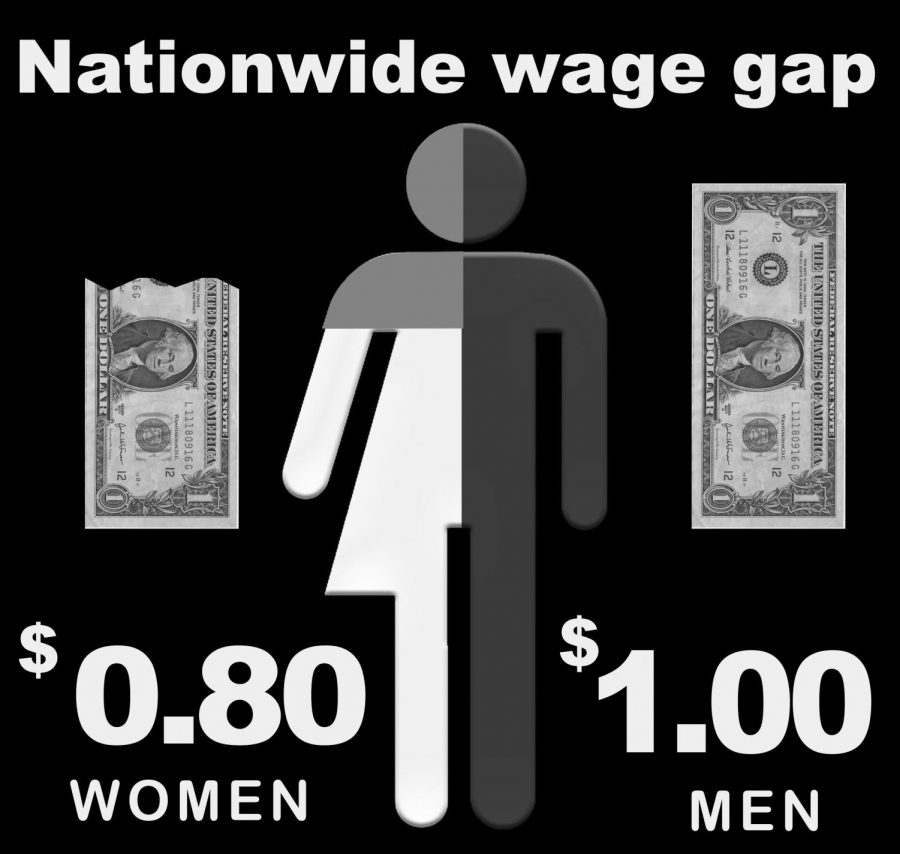Gender pay wage gap continues
March 26, 2018
As the late Notorious B.I.G quoted in his 1997 song, “Mo money, mo problems.” According to the American Association of University Women, women wanting to make more money still causes more problems.
Although the Equal Pay Act of 1963 was a labor law intended to stop gender-based wage discrimination in the U.S., as of 2017, women still make 80 cents for every dollar paid to men.This amounts to an annual gender wage gap of $10,470.
Asking for higher pay may be the key to solving the equal pay problem, according to English professor Jaleesa Harris.Harris believes that female students and young professional females can combat this by learning how to become comfortable with asking for their worth.
“When you get that job and the decision of salary is discussed, you are now powered with the extended knowledge that equips you to contribute to this conversation,” Harris said.
She said that before going to a job interview, students should research the job, find out what their annual salary is and what that salary is in relation to that specific living area.
She says financial literacy is important when it comes to women negotiating for pay, because that is how jobs and huge companies are able to not pay women the amount they are supposed to earn.In Louisiana, these statistics are the worst.
The largest gap in the U.S is located in this state, where women were paid 70 percent of what men make. The median annual pay for a woman who holds a full-time, year-round job is $33,832 while median annual pay for a man who holds a full-time, year-round job is $49,730. This means that women in Louisiana are paid 68 cents for every dollar men earn.
“I’m disappointed, but not surprised,” ULM alum Devin Mcmullen said.The marketing graduate said that the only way she would know she was making less at her job is if she asked.
Mcmullen works at a local bakery in Shreveport and said that talking about her job pay is frowned upon at work.“I got a raise recently, and my manager told me it’d be between us,” Mcmullen added.
She plans to move out of state when she gets her new job, but wherever she goes, she will ask for higher pay if she finds out she is making less. If progress continues at the slower rate seen since 2001, the wage gap won’t completely disappear until 2119.



